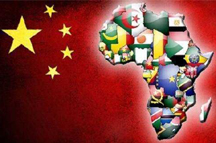Africa’s history is laced with decades of colonial exploitation, which together with developmental assistance programmes such as the International Monetary Fund’s structural adjustment initiatives of the 1980s and 1990s, has had debilitating consequences.
Fast-forward to the early 2000s and China’s strategic interests in Africa become more pronounced. The Asian superpower is in search of resources like oil, gas, and metals to meet its energy imports and construction demand, and to sustain its manufacturing industry. More recently, China has branched into non-resource investments like building infrastructure through the Road and Belt Initiative.
High Cost of Having China as Africa’s Partner of Choice

African leaders have embraced economic engagement with China, which is perceived as a welcome alternative to the continent’s long-standing Euro-American ties that often came with demanding conditions. Africa’s relationship with China has offered significant benefits, particularly in bridging the continent’s infrastructure deficit.
China’s relationship with Africa is increasingly showing characteristics evident during colonialism.
Owing to the ‘no conditionality’ policy, many African countries have turned to China as the partner of choice. However the relationship is increasingly showing some characteristics evident during colonialism, raising questions about the true cost of the benefits Africa is getting from China. Only as recently as 2015 did China start visibly focusing on the commercial and viability aspects of their investments.
Read More
China’s relationship with Africa is increasingly showing characteristics evident during colonialism.
Owing to the ‘no conditionality’ policy, many African countries have turned to China as the partner of choice. However the relationship is increasingly showing some characteristics evident during colonialism, raising questions about the true cost of the benefits Africa is getting from China. Only as recently as 2015 did China start visibly focusing on the commercial and viability aspects of their investments.
Read More
Advertisers | Contact Us | Events | Links | Media Kit | Our Company | Payments Pier
Press Room | Print Cover Stories Archives | Electronic Issues and Talk Radio Archives | Writer's Guidelines






